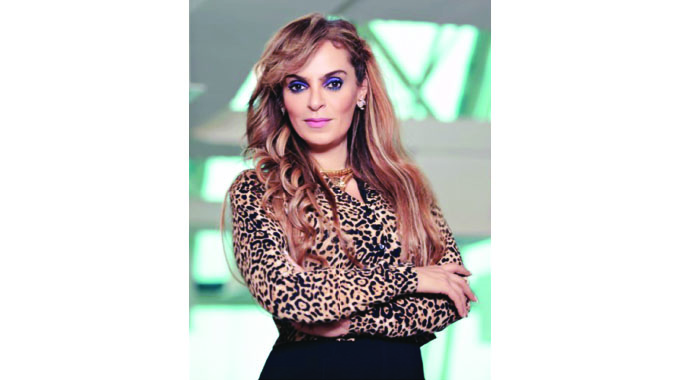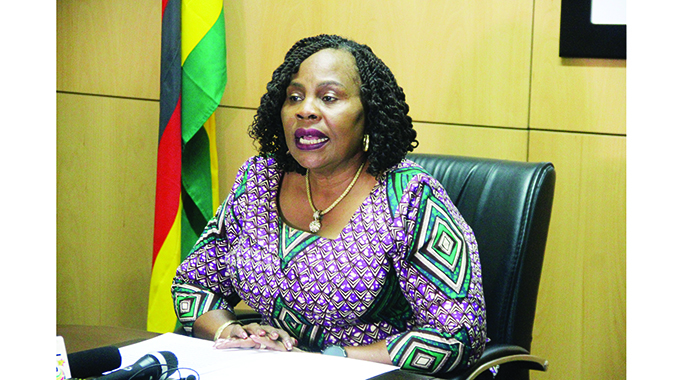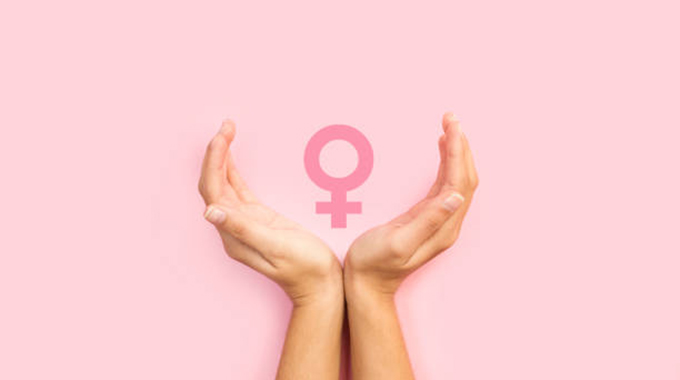IWD 2022: Putting women’s education, health needs first

Roselyne Sachiti
Health & Society Editor
Today, African women, Zimbabweans included, join the rest of the world to commemorate the International Women’s Day 2022 (IWD).
Celebrated on March 8 each year, this year’s theme is; “Gender equality today for a sustainable tomorrow”.
The theme, which comes at a time the world is shaking off the impact of Covid-19, intends to promote a gender equal world, which is free of bias, stereotypes and discrimination.
In Africa specifically, women have made significant strides in the political arena over the past few years with many taking up space in governance.
Many, too, have claimed their space in corporates. Over the years, women have proved the important role they play in countries’ development.
Their education and health has been a priority to ensure progress on the development trajectory.
In Africa, Merck Foundation chief executive Dr Rasha Kelej, who is also one of the Most Influential Africans in 2019, 2020 and 2021 strongly believes in girl education and also that education is one of the most critical areas of women’s empowerment.
“When girls are educated, they can raise strong families, communities and countries. I realise there’s a need for more support as there are many brilliant girls out there who are struggling financially and socially to meet their educational needs,” she said.
“Therefore, we started “Educating Linda”, a pan African program that helps young girls who are unprivileged, but brilliant to continue their education. The spirit of the project is to provide an opportunity to such girls to pursue their dreams and reach their potential through access to education.”
In partnership with African First Ladies, Merck Foundation has been contributing to the future of thousands of girls.
This has been done by providing support in partnership with the African First Ladies through providing scholarships and grants that can cover school fees, school uniforms and other essentials including notebooks, pens and mathematical instruments.
“Moreover, we provide 3 000 sets of essential school items for girls’ schools to many countries yearly,” added Dr Kelej.
“We also support and empower women in the areas of Science and Technology. Under-representation of women still exists in these fields, even though women have made tremendous participation and progress in their careers. Every year, we conduct the ‘Merck Foundation Africa Research Summit’ in partnership with African Governments and African Union Scientific, Technical and Research Commission.”
Dr Kelej said more than 550 out of 1 200 scholarships they provided for young doctors through Merck Foundation were for female doctors, which is a huge milestone.
“Educating a girl means changing the world – not just her world, but the world she lives in. Education is the key to unlocking access to economic opportunity and other life-giving resources for millions around the world,” she explained.
“Educated girls grow into women who are empowered to care for themselves, their families, and their communities. When you invest in a girl, the dividends are immeasurable.”
According to Dr Kelej, education is also a strong strategy to stop child marriage, gender based violence, female genital mutilation and sexually transmitted diseases.
“I also believe that girl education is the best vaccine for HIV. So educating girls can really make a big difference,” she said.
With reproductive health challenges like infertility also affecting women, Merck Foundation through the “Merck Foundation More Than a Mother”, a strong movement, has been aiming to empower infertile women through access to information, education and change of mindset.
Dr Kelej said she initiated “More Than a Mother” campaign in 2015, and it aims to empower infertile and childless women through access to health, information, education and change of mindset.
She added that the campaign defines interventions to break the stigma around infertile women and raises awareness about infertility prevention, management, and male infertility.
In partnership with 20 African First Ladies who work closely with Merck Foundation as ambassadors and together with the Ministries of Health, Information, Education and Gender, Media and Art, this campaign also provides training for the fertility specialists and embryologists in their countries to build and advance fertility care capacity in Africa, Asia and developing countries.
“I am proud that we have provided more than 370 scholarships to doctors from 37 countries, with the aim to advance women’s health, reproductive and sexual care and fertility care capacity in Africa and developing countries,” said Dr Kelej.
“However, Merck Foundation has provided more than 550 scholarships out of a total 1 200 to female doctors in 42 countries, these are scholarships of one-year diploma and two-year master degree in underserved and critical specialties such as; Respiratory Care, Endocrinology, Fertility, Cardiovascular Preventive, Oncology and more with the aim to empower women in STEM.”
First Lady Auxillia Mnangagwa is Merck Foundation’s More than a Mother ambassador and to date her partnership with the organisation has seen more than 100 scholarships to Zimbabwean doctors in many critical specialities and under-served disciplines as a part of a drive to transform healthcare quality and allow equitable access to all.
Areas covered by the scholarships include Fertility and Embryology, Oncology, Diabetes, Cardiovascular, Endocrinology, Sexual and Reproductive Medicine, Respiratory, Acute Medicines, Clinical Microbiology and infectious diseases.
On International Women’s Day, Dr Kelej has a message for African women.
“I would like to tell every woman to believe in herself and be confident at every step of her life,” she said. “Passion, hard work, putting heart, soul and mind in everything is the success factor. Also, as I always emphasise, when you make it in life, do not forget to support others around you!”
The Pan African Positive Women’s Coalition in Zimbabwe (PAPWC-ZIM) Tendayi Westerhoff said this year they celebrate women living with HIV in Zimbabwe and remember the challenges they have gone through as a result of the Covid-19 pandemic.
“We have weathered storms, and when we appear to be pulling out of the mud and walk in the valley, another gushing torrential storm hits again,” she said.
“Our resilience of having lived with HIV sees us holding hands, pulling each other to safety.
“The past two years have been trying times. Covid-19 did not spare us, as the majority of us are self- employed, we went through a very difficult phase.”
Westerhoff said resilience building through virtual platforms saw them sharing project ideas and in some instances, an appeal to help financially saw the women and girls sending each other help.
“Such love, being a sister’s keeper has seen the organisation grow from strength to strength,” she said.
She said young women and adolescent girls have unique challenges from adherence, pill burden, dating and disclosure.
“It is not easy as stigma stifles their ability to fly and proclaim their safe spaces. We lost more women and adolescent girls to lack of adherence to treatment than to the Covid-19 pandemic itself,” she added.
Community Working Group on Health (CWGH) Executive Director, Itai Rusike, said community health workers, the majority of which are women play a central role in closing the gap between public health services and communities at local levels, bringing health services outreach to communities and facilitating community roles in the health delivery system.
Female CHWs, he said, continued up to today to augment the work being done by the mainstream health sector, raising awareness, giving health advice, monitoring growth of children under five years, carrying out Covid-19 health literacy awareness campaigns, mobilising communities during out-reach programmes and for immunisation.









Comments